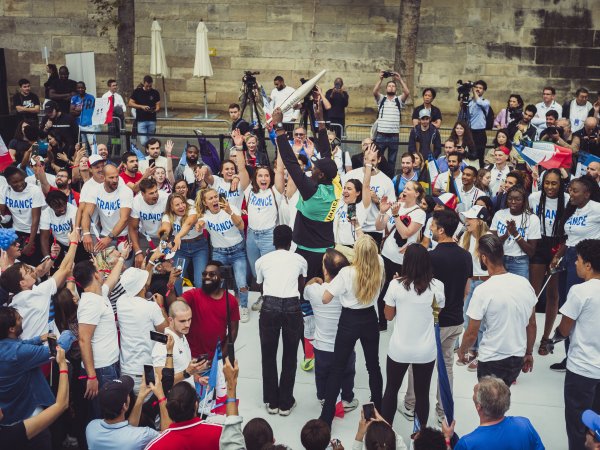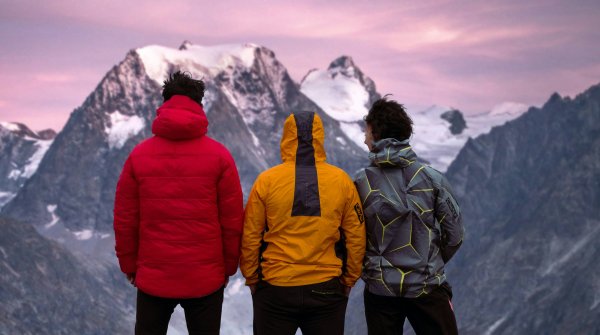Sport accounts for 2.6 percent of French GDP. According to a study on the 2023 sports market in France by BPCE-Bank, official partner of Paris 2024, sport-related consumption amounts to sports-related consumption in France amounts to a turnover of 53 billion euros. Of this, 24.3 billion euros will be generated by various sporting events in the country and through the purchase or rental of sporting goods. In total, 128,000 companies in the sports sector generate a turnover of 71 billion euros per year, according to the Conseil National des Villes Actives et Sportives (CNVAS), which is under the auspices of the Ministry of Sport and the Olympic and Paralympic Games. It goes on to say: "In 2023, 50 percent of sports activities will be carried out in nature. Hiking, swimming, running and cycling are the four most practiced sports in France."
And worldwide? According to a recent study by WFSGI and McKinsey sales of sporting goods grew by 6 percent in 2023 - compared to 2 percent in 2022. We are seeing increases in all geographical regions, slightly more in Western countries and emerging markets. In 2023, growth was strongest in Western Europe (+8%), Asia-Pacific (+11%) and Latin America (+22%). According to the survey, competition with local players is increasing. Brands such as Anta, Li-Ning, Xtep and Erke in China and Port de bras in Latin America are gaining ground on the sports giants. It is expected industry is expected to continue to grow at an annual rate of around 7 percent until 2027. Drivers are new, trendy sports such as trail running, as the figure from the French Athletics Federation shows: in 2020, there were already 1.77 million trail runners worldwide. This does not even include other running disciplines such as marathons or jogging.
The most important boosters include international sporting events or traditional competitions that receive a lot of media attention - above all the Olympic Games. The top athletes involved are increasingly increasingly contribute to the development of their equipment, influence brands and increase the popularity of new sports through their social media presence.
Another lever is sports tourism, as already highlighted at ISPO Munich 2023 with a series of talks on this topic. In Portugal, Spain or France, this approach has a very strong added value. Regions and companies should develop it as a priority if they want to benefit from an increased number of visitors at certain times of the year.
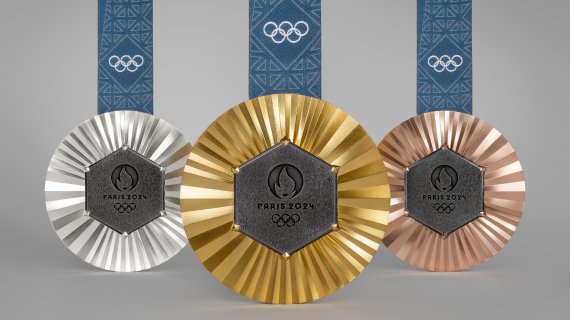
In addition, a study funded by the Ministry of Sport and the Economy shows that 29% of French people are fans of sports tourism, whether for hiking or other sports such as swimming, cycling/mountain biking or canoeing/kayaking. This is opening up new opportunities for brands to manage their product margins differently - for example, through rentals or other offers that focus on usage rather than products alone. It also forces them to rethink their seasonality, as Oxbow is currently proposing with less frequently renewed collections. Recently Julien Durant, CEO of Picture Organic Clothingstated that he wants to integrate these usage-based consumption practices into sales by 2030.
Whether legal, climatic or reputational - the risks for brands at major events cannot be ignored. And the sports culture is developing accordingly. The specifications of the Olympic Committee contain specific environmental responsibility targets for brands in relation to transportation, food and merchandise sold during the Olympic Games. Reputational risk can have an impact on public image and credibility. Controversial behavior, production scandals, faulty products, inappropriate statements or the behavior of an athlete can damage the reputation of the team or brand they represent. Recently, the Swiss magazine Ktipp published an investigation into the margins of ON Running. Customs records of 30 models were compared with the sales prices on the sneaker brand's website. The brand has since explained that the article contained inaccurate figures. But the damage to its image is there.
This example shows that traceability and transparency in sourcing are no longer secondary information. They protect against such risks and help to prepare for the challenges in supply chains. In addition, greenwashing regulations require brands and marketers to review their marketing and sales arguments from an accounting and legal perspective. In France, greenwashing is considered a misleading commercial practice. It is a criminal offense punishable by consumer protection and the DGCCRF (Direction générale de la concurrence, de la consommation et de la répression des fraudes ).
The Quiet OutDoor trend shows the aesthetic convergence between luxury and the outdoor world. This trend is also developing in commercial connections between luxury and sport. For example, the Tahitian surfer Kauli Vaast, who qualified for the 2024 Olympic Games, was chosen by Dior™ as a testimonial selected. Tennis world number two Carlos Alcaraz, swimmer Léon Marchand and Antoine Dupont, player of the French national rugby team, are Louis Vuitton™ ambassadors. Dior also has tennis player Pauline Déroulède under contract. L'Oréal™ and Décathlon™ are asking athlete Nantenin Keita, a member of the Paris 2024 flag-bearer delegation, to join them.
Stéphane Ashpool, creator of the Pigalle Paris™ brand, dusted off the official clothing of the French athletes for Le Coq sportif™ and turned it into pieces that will undoubtedly become icons. During the Games, the consumption of content and influence on social networks will explode: The history of the athletes, the background to the Games, the preparation and the emotions will be popular topics. Because what we remember is the sporting performance and the strength of teamwork. Some participants have immense communication potential, such as British skateboarder Sky Brown with her 3.5 million Instagram™ & Tiktok™ subscribers. In addition, events are becoming brands that are themselves associated with values, such as PARIS 2024™. These event brands protect themselves as much as possible.
A phenomenon can be observed that directly affects marketing and communication: ambush marketing is a marketing strategy used by a company or individual to capitalize on a specific event without having a partnership or official rights to that event. François Guéant, who managed the legal affairs of the 2023 Rugby World Cup in France, confirms: "Regardless of the sympathy bonus of an ambush marketing campaign, the risks are numerous. Loss of reputation through shaming campaigns that the organizer or its partners can launch. Civil proceedings due to unfair competition, with claims for damages amounting to several hundred thousand euros. Criminal proceedings in the event of brand piracy or fraud that overlap with unfair competition." Here, brands seek an interest in image associations, often through the commercial use of logos, color codes, keywords and hashtags associated with the event. Fraudsters create advertising campaigns or postings that give the impression of being associated with the event. Some organizations and associations have developed tools to help their members fight against unfair competition unfair competition. For example, the Union Sport Cycle association, where legal director Cécile Landreau advises members.
France's bid for the 2030 Winter Olympics offers an opportunity to put major competitions and planetary boundaries in context. There are several projects in support of the Olympic Games that address this issue. Among them is the NGO Protect Our Winters France, represented by Antoine Pin. Indeed, mountain areas are often at the forefront of climate change. The reduction in snow cover, the accelerated melting of glaciers and the increase in extreme precipitation are exerting considerable pressure on ecosystems, the availability of important resources and biodiversity. This sometimes calls into question the future tourism viability of these regions. Several measures could be taken to host the Olympic Games within planetary boundaries. Environmental compatibility, sustainable mobility and the reduction of environmental and carbon impact in particular would be the main points, alongside circular economy solutions for both equipment and infrastructure. The destruction of sensitive natural habitats must be prevented in order to promote ecological restoration after the Games.
Sometimes it is also local regulations that require a certain level of CSR commitment. At the 2028 Olympic Games in Los Angeles, official partners such as Nike™ or the eyewear brand Oakley™, which will provide sunglasses and ski goggles, must take CSR and legal frameworks into account. California will have implemented the California Safer Clothes and Textiles Act (AB 1817) by 2025. This bans the persistent chemicals PFAS (per- and polyfluorinated alkyls) in the manufacture, distribution and sale of new textile products. And suppliers are obliged to opt for less harmful alternatives. Sympatex™ and Primaloft™ already offer alternatives. And Bluesign™ makes it possible to track chemical parameters throughout the entire production process. At the beginning of 2024, Ökotex™ revised its standards to apply a limit value for the reduction of total fluoride content.
If the terms of the European Green Deal are implemented, carbon neutrality will be a target for 2030. In fact, it calls for reducing average emissions (compared to 1990) by at least 55 percent, i.e. decarbonizing transport and infrastructure. The host countries and regions are very committed in the years leading up to the competitions. Their task is to work together with local stakeholders for the economic development of the region while avoiding greenwashing situations. The biggest challenge of the transformation could be to convince people of the benefits of a sporting competition organized in a more virtuous way. This is what the Games of the future could look like: A global, peaceful sports festival that is organized in harmony with the region and its nature, where sports venues are used sustainably, where athletes* are respected and where brands also benefit because they can communicate their messages authentically without greenwashing.
How can brands profit despite strict regulations surrounding the 2024 Olympic Games?
Brands can benefit from increased attention during the games by focusing on sports tourism, developing sustainable products, and forming partnerships with athletes.
What trends are shaping performance in the sports business?
International sports events and the involvement of elite athletes in equipment development influence brands. The trend towards new sports like trail running also presents opportunities for the sports business.
What risks do brands face at major events like the Olympics?
Risks for brands at major events are diverse, including legal, climate-related, and reputational risks. Controversial behavior or production scandals can damage a brand's reputation.
What is Ambush Marketing and what risks does it entail?
Ambush Marketing is a strategy where companies try to capitalize on an event without official partnerships. Risks range from reputational damage to legal consequences.
How can brands harness the emotions of the games for themselves?
Brands can benefit from increased attention by partnering with athletes, leveraging social media, and creating emotional connections to the games.
What future challenges await brands in the sports business?
Future challenges for brands in the sports business include increased engagement in Corporate Social Responsibility (CSR) to meet environmental requirements and legal frameworks, as well as avoiding greenwashing.
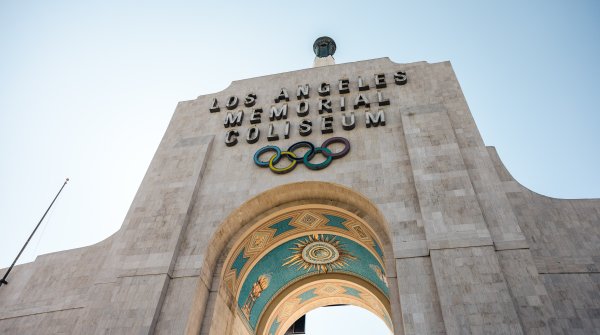 Sports BusinessNew trend sports at the 2028 Olympics
Sports BusinessNew trend sports at the 2028 Olympics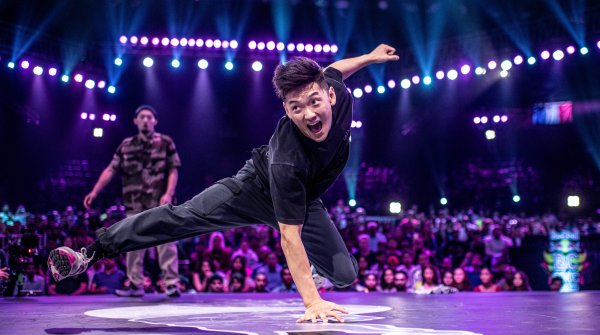
- Awards
- Mountain sports
- Bike
- Fitness
- Health
- ISPO Munich
- Running
- Brands
- Sustainability
- Olympia
- OutDoor
- Promotion
- Sports Business
- Textrends
- Triathlon
- Water sports
- Winter sports
- eSports
- SportsTech
- OutDoor by ISPO
- Heroes
- Transformation
- Sport Fashion
- Urban Culture
- Challenges of a CEO
- Trade fairs
- Sports
- Find the Balance
- Product reviews
- Newsletter Exclusive Area
- Magazine
